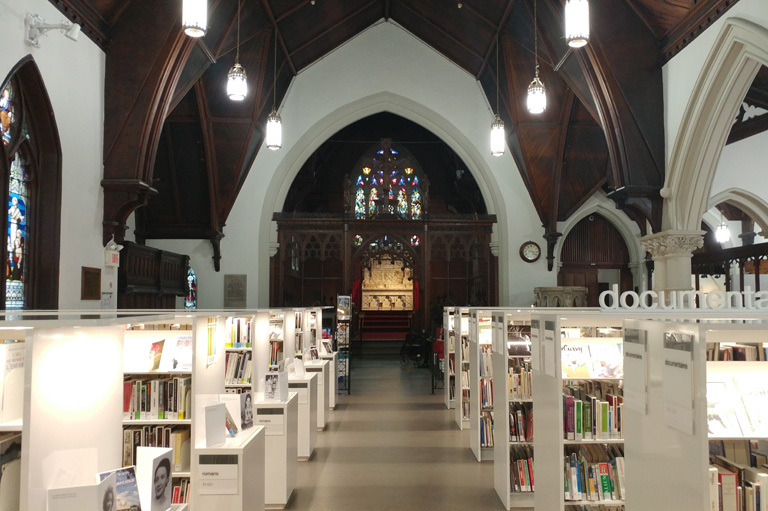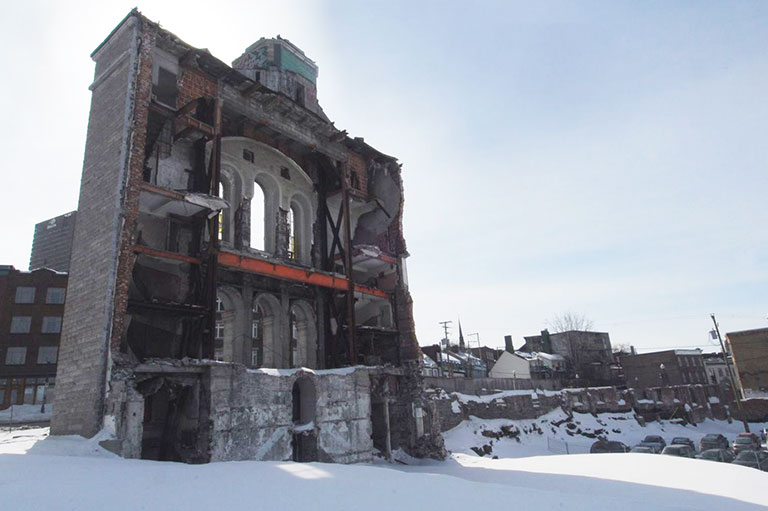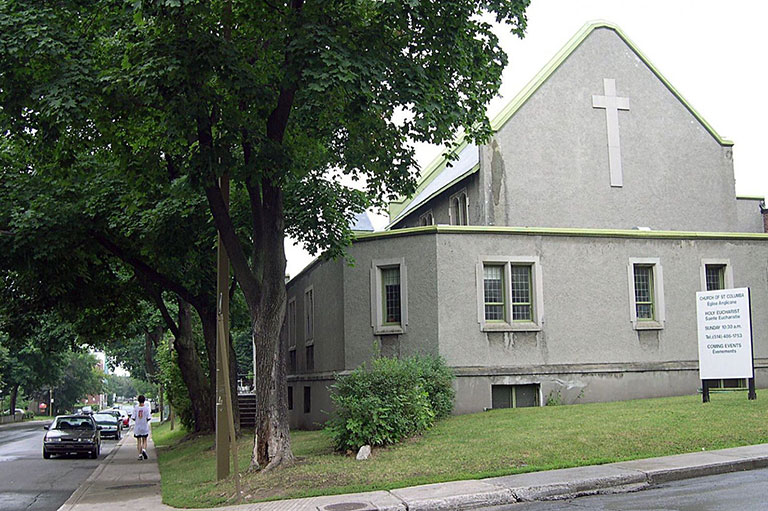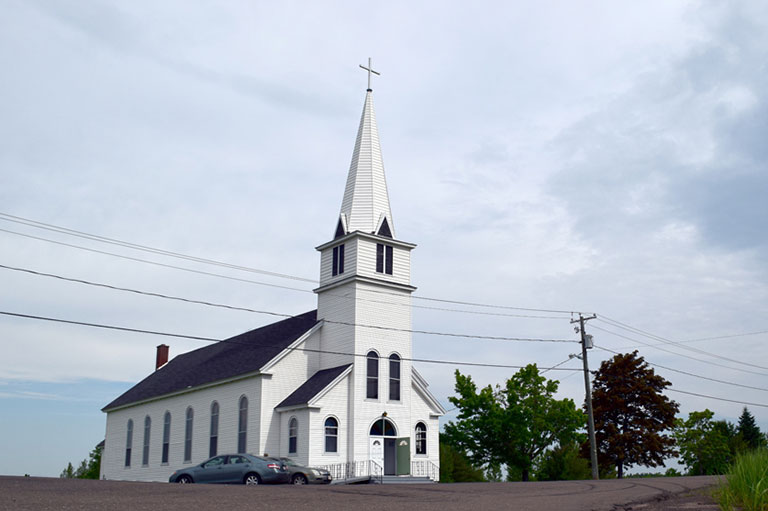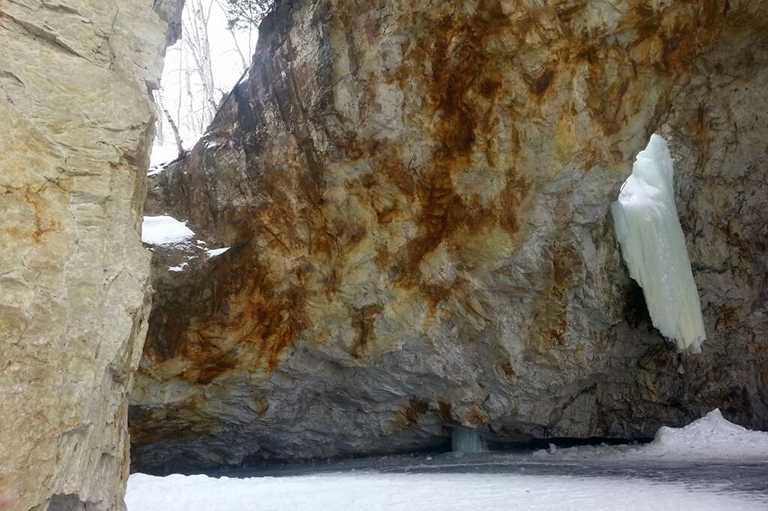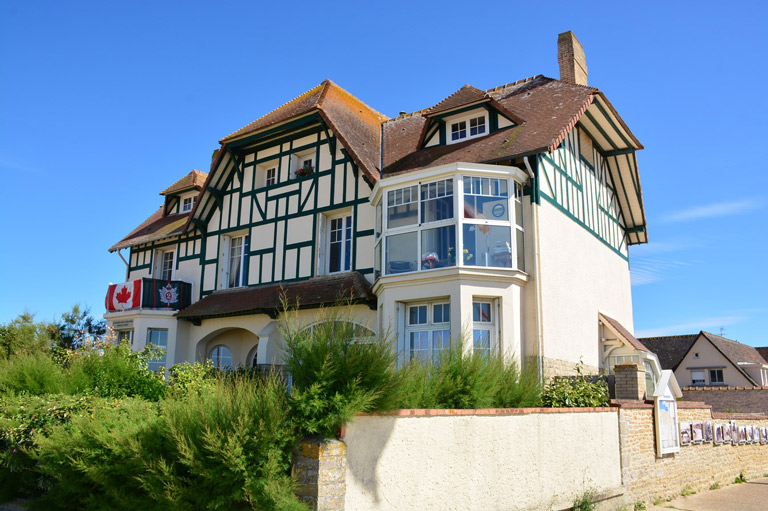Transforming Religious Heritage: Province of Quebec
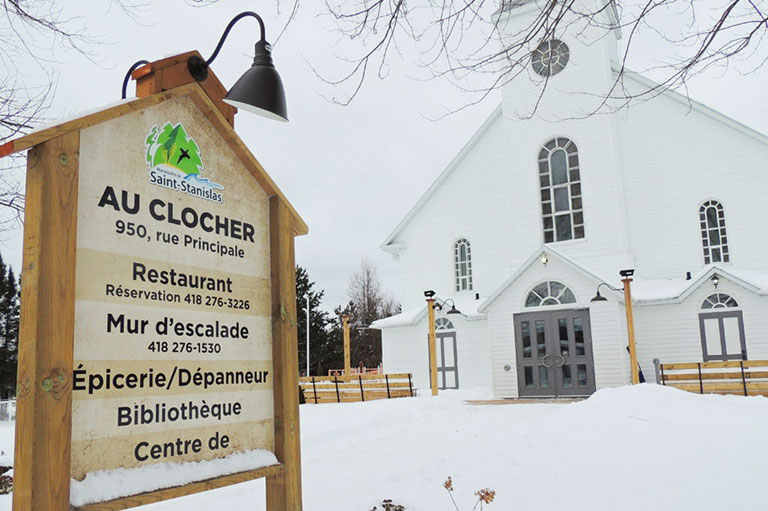
2,755. The number of places of worship listed as such in the Inventaire des lieux de culte du Québec (Quebec Inventory of Places of Worship). Of these, 90 have been demolished and over 300 have seen their vocation change. These last two figures are growing from year to year, due both to the waning of religious practice among several denominations and to the slow decline of religious congregations.
Some transformations of religious heritage are remarkable, both in their approach and their outcome, while others are utterly deplorable. As promised in the first article in this series, in which we outlined the criteria for a successful transformation, we will now take a look at a few remarkable examples in the province of Quebec.
Success stories...
Au Clocher Multifunctional Centre (Saint-Stanislas Church) — Saguenay-Lac-Saint-Jean
Library and screening room, café-restaurant, grocery store, rock climbing wall, fitness centre, youth centre... and place of worship—new roles for the former Saint-Stanislas Church, located in the municipality of the same name. The exceptional conservation and redevelopment of a “third place” that sets an example for all other parish councils and municipalities in Quebec.
Despite the many modifications required for this project, the church has retained its appearance through its vault and its fenestration but, more significantly, has enhanced its important role in municipal life. In 2013, the parish council realized it would no longer be able to maintain the building on its own. But, with the diocese’s willingness to find solutions, the involvement of various regional organizations, and an outpouring of support from citizens seeking to re-establish their updated “third place,” Saint Stanislas Church was saved.
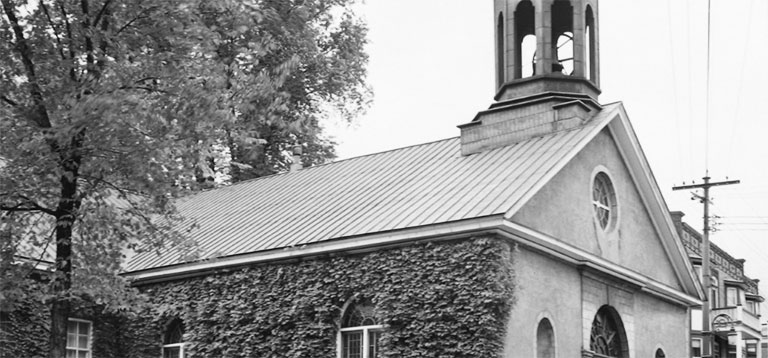
Récollets Arts Centre — St. James Anglican Church — Trois-Rivières
ÀIn Trois-Rivières, an arts centre was built inside a former Anglican church that has been restored to its erstwhile French Regime splendour. In that era, the Récollets had a convent on the site, which was abandoned in 1776 and taken over by the Church of England in the 19th century. In 2011, Trois-Rivières acquired the historic site, got the restoration underway, and gave the buildings their new role, while guaranteeing that the faithful would continue to have access to the site for Anglican religious celebrations. The spirit of the place was thereby restored, preserved, and brought up to date.
The restoration and refurbishment of the Récollets convent ensure the sustainability of the place of worship and the commemoration of its history. Its new use fulfills the role that the Anglican church once played—and still plays—as a “third place.” In this regard, this is an exemplary transformation that shows how government involvement (at the provincial and municipal levels, in this case) can facilitate the conservation of religious heritage.
...and examples to avoid following
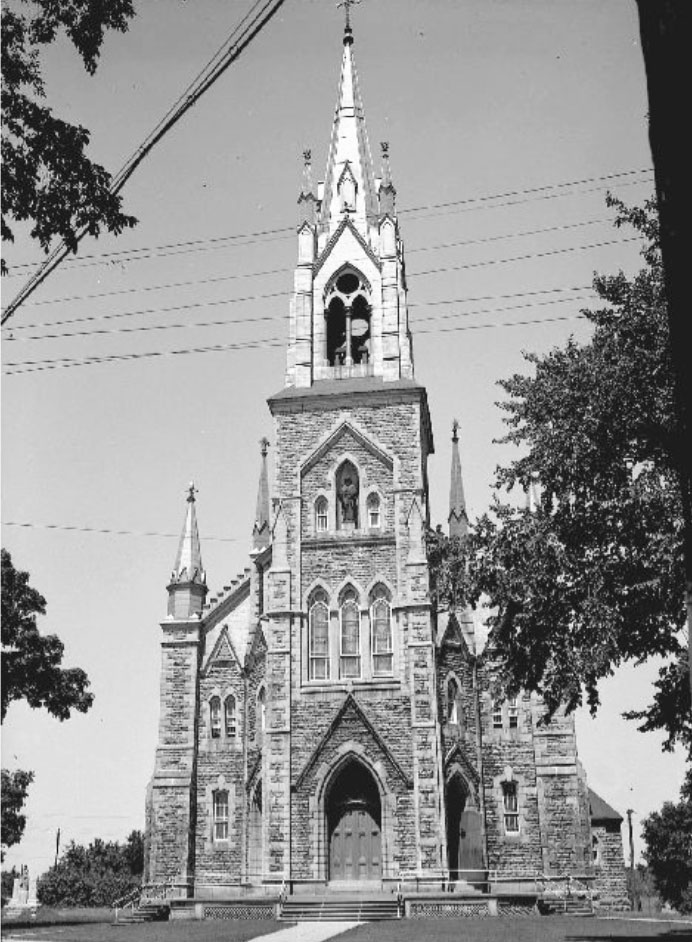
Saint-Paul d’Aylmer Church — Gatineau (Outaouais)
Built in 1894, Saint-Paul d’Aylmer Church benefited from several refurbishments before its partial destruction by fire in 2009. In 2010, the parish council began looking at ways to use the ruins in a new project (as several solid walls remained standing). The cultural and community needs of nearby residents seemed to provide a perfect opportunity to revive and update Saint-Paul Church.
After an architectural competition with notable results, many efforts on the part of the parish council—including a $3 million proposal to participate—, the involvement of provincial and federal representatives, and the establishment of an NPO with a mission to see the transformation to completion, the project nevertheless collapsed. For three years, the city of Gatineau refused to get involved. In 2013, as the walls had suffered from exposure to changing weather conditions and became unsafe, the council had no other choice but to demolish the remains.
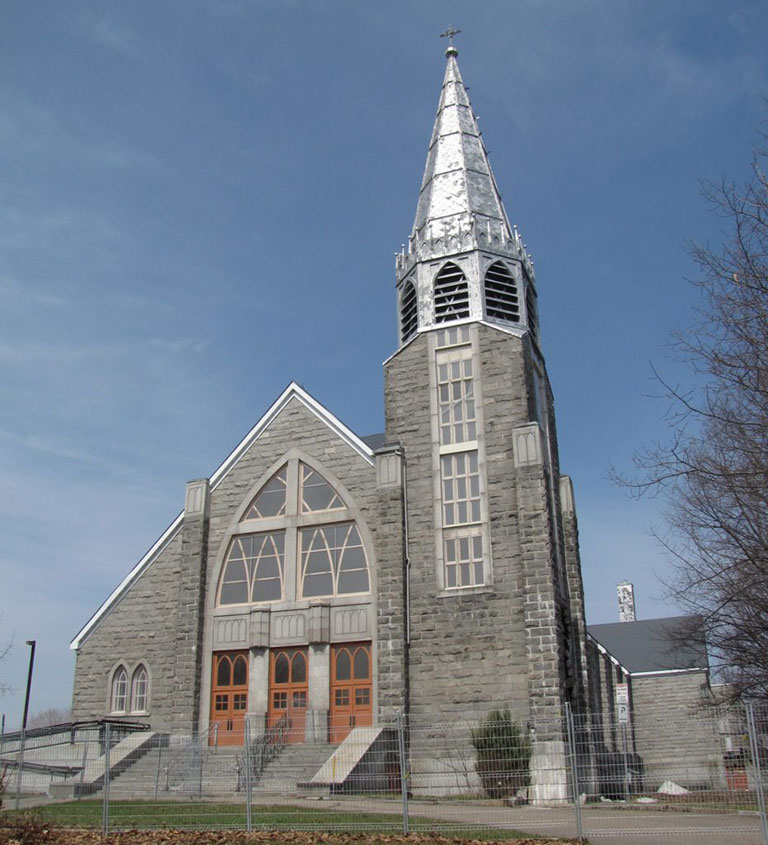
Sainte-Marie-Madeleine Church — Trois-Rivières (Mauricie)
Abandoned for several years, Sainte-Marie-Madeleine Church is on a direct path to demolition. The place of worship was acquired by a nameless company (generally called a “numbered company”) in 2013 and was supposed to be turned into a hotel-condominium.
However, the buyer never fully paid the parish council for the building, nor did it pay its municipal taxes. In 2015, the city was said to be preparing to force the developer to sell the property. As of the writing of this article, the Trois-Rivières land registry shows that the church still belongs to the numbered company. The site has fallen prey to squatters and recurrent fires, suffering from a flagrant lack of maintenance. At this rate, within a few years, Sainte-Marie-Madeleine Church will unfortunately be unfit for a conversion.

